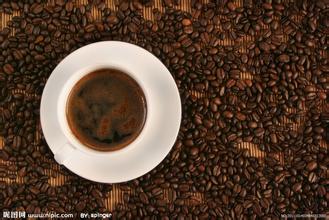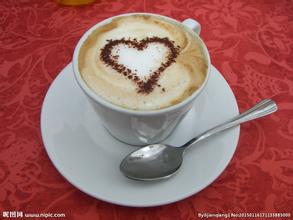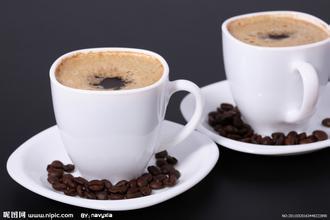Introduction to Yinshan Manor in the flavor producing area of Blue Mountain Coffee Manor in Jamaica
(Portland) and St. Thomas (StThomas) producing areas. In eight years, Jamaica exported more than 375 tons of pure coffee. In 1932, coffee production reached its peak and more than 15000 tons of coffee was harvested. But by 1948, the quality of coffee had declined and Canadian buyers refused to renew their contracts, so the Jamaican government set up the Coffee Industry Committee to save the fate of top coffee. By 1969, the situation had improved because the use of Japanese loans improved the quality of production, thus ensuring the market. Even in 1969, Japanese coffee drinkers were willing to pay insurance for the coffee, but now it has reached the point of being madly loved. By 1981, about 1500 hectares of land in Jamaica had been reclaimed for coffee cultivation, followed by investment in another 6000 hectares of coffee land.
In fact, today's Blue Mountain area is a small area with a planting area of only 6000 hectares, and not all coffee marked "Blue Mountain" can be grown there. Another 12000 hectares of land is used to grow two other types of coffee (non-Blue Mountain Coffee): Alpine Top Coffee (High Mountain Supreme) and Jamaican Coffee (Prime Washed Jamaican).
The real Blue Mountain Coffee is one of the most advantageous coffee growing conditions in the world. The weather, geological structure and topography of Jamaica provide a unique ideal place. The ridge across Jamaica extends to the east of the island, and the Blue Mountains are more than 2100 meters high. The cool weather, foggy weather and frequent rainfall reconcile the rich land of Rain Water. Here people use a mixed planting method to plant coffee trees next to banana trees and alligator pear trees in terraces. Some small estates also grow Blue Mountain Coffee, such as Wallenford Estate, Silver Hill Estate and Atlanta Estate in J.Martinez. Even the largest landowners in the region are small-scale growers by international standards, many of whom are small landowners whose families have been working on the land for two centuries.
The coffee industry in Jamaica faces a series of problems, such as the impact of hurricanes, the increase in labor costs and the difficulty of mechanizing terraces. It is difficult to rationalize planting on many small estates and farms. However, Blue Mountain Coffee is one of those coffee retailers that value credibility to stock some coffee no matter what. A leading British retailer said: regardless of the price, he will continue to sell Blue Mountain coffee all year round because he has many customers who only recognize "Blue Mountain".
Now, 90% of the post-harvest Blue Mountain coffee is bought by the Japanese. In 1992, Jamaica sold 688 tons of Blue Mountain coffee to Japan, 75 tons to the United States and 59 tons to Britain. Now, because the rest of the world can only get 10% of the production of Blue Mountain coffee, regardless of the price, blue
Mountain coffee is always in short supply. In the UK, Langford Brothers Brothers has been the only supplier for many years. Later, the Edmunds Group (Edmonds Group) also received supplies from Jamaica's Salda Food Company (Salda Foods).
The difference in transportation between Blue Mountain Coffee and other coffee is that it is transported in barrels with a capacity of 70 kilograms, a replica of Bonifieur barrels produced in Guadeloupe in the last century. The barrel was originally used to carry flour shipped from the United Kingdom to Jamaica, usually with a trademark and the name of the manufacturer. For more information on imported coffee beans, please follow China Coffee Network.

Important Notice :
前街咖啡 FrontStreet Coffee has moved to new addredd:
FrontStreet Coffee Address: 315,Donghua East Road,GuangZhou
Tel:020 38364473
- Prev

Jamaican Coffee Manor Silver Mountain Manor Fine Coffee beans taste introduction to Jamaican Blue Mountain Coffee
It makes me feel like a gem of quality. It is as precious as a gem. It's complex, but very mild, it's sweet, it's very mellow. You have to taste it to know what I'm talking about. Unique growth conditions and careful production make Jamaican Blue Mountain Coffee very famous. Jamaica is the region with low coffee production in the world.
- Next

Coffee manor area introduces the flavor of Jamaican coffee beans in Cliff Manor, Jamaica.
The preservation of coffee is very important, no matter how valuable the coffee is, if it is not preserved properly, it will lose its flavor. Although the storage period of coffee beans in vacuum packaging is about 24-28 months, and the vacuum packaging of flexible film is 12 months, in order to achieve better quality and aroma, they can be bought properly and cooked within the effective period.
Related
- Does Rose Summer choose Blue, Green or Red? Detailed explanation of Rose Summer Coffee plots and Classification in Panamanian Jade Manor
- What is the difference between the origin, producing area, processing plant, cooperative and manor of coffee beans?
- How fine does the espresso powder fit? how to grind the espresso?
- Sca coffee roasting degree color card coffee roasting degree 8 roasting color values what do you mean?
- The practice of lattes: how to make lattes at home
- Introduction to Indonesian Fine Coffee beans-- Java Coffee producing area of Indonesian Arabica Coffee
- How much will the flavor of light and medium roasted rose summer be expressed? What baking level is rose summer suitable for?
- Introduction to the characteristics of washing, sun-drying or wet-planing coffee commonly used in Mantenin, Indonesia
- Price characteristics of Arabica Coffee Bean Starbucks introduction to Manning Coffee Bean Taste producing area Variety Manor
- What is the authentic Yega flavor? What are the flavor characteristics of the really excellent Yejasuffi coffee beans?

